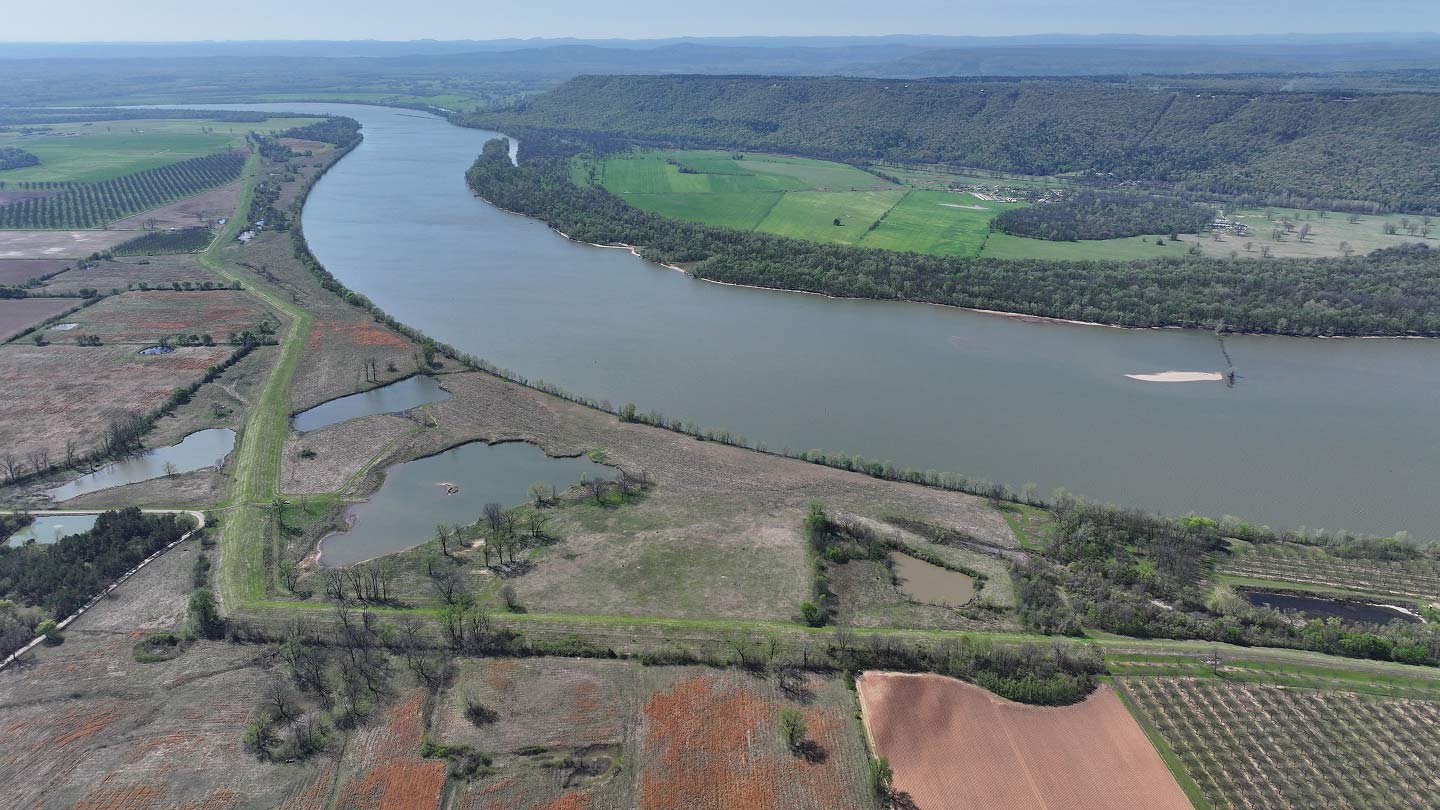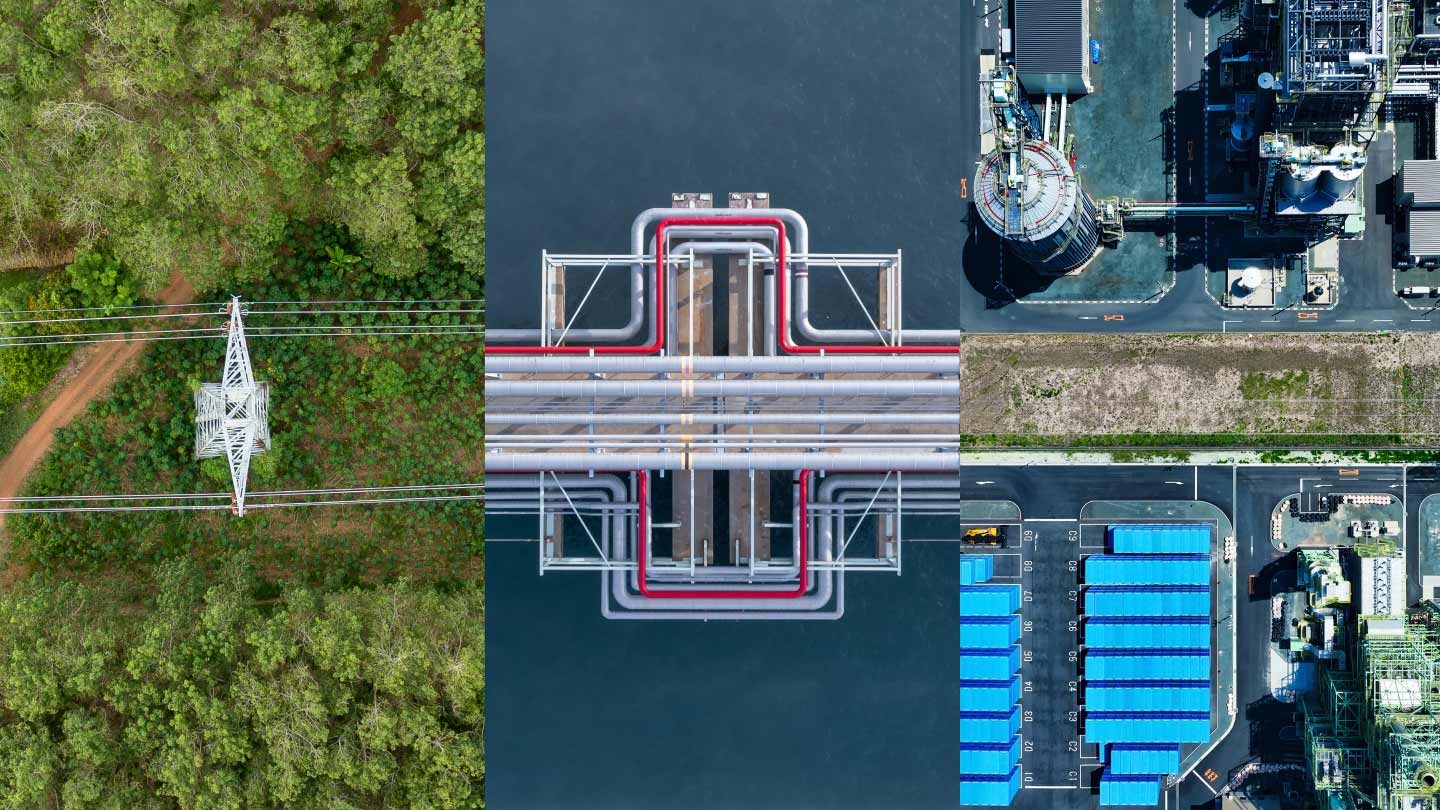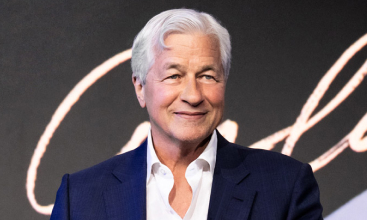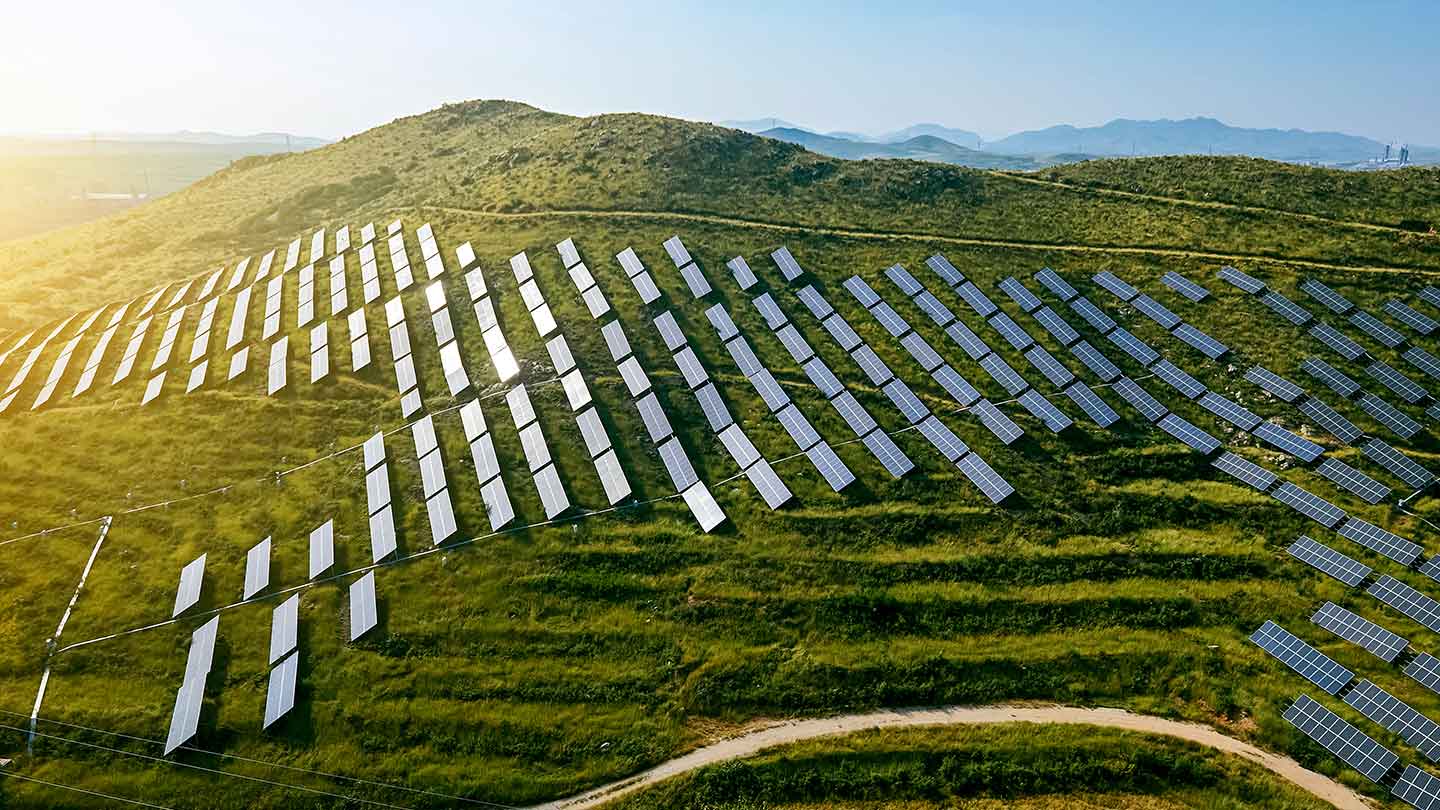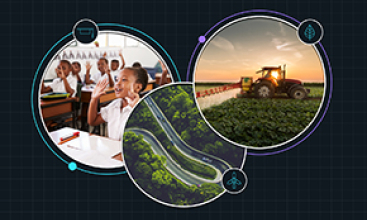Carbon Compass®
JPMorganChase has established a series of climate-related metrics and targets which are designed to help us understand the impact of our efforts and how we can support an energy-secure transition to a low-carbon economy. Our Carbon Compass® sets out the framework for how we define, measure and track our climate-related metrics and targets.
Methane Report
Reducing methane emissions and flaring in the Oil & Gas sector is an immediate action that can produce positive outcomes for businesses, the climate, and energy security. Significant progress is achievable this decade.
Methane Report
Reducing methane emissions and flaring in the Oil & Gas sector is an immediate action that can produce positive outcomes for businesses, the climate, and energy security. Significant progress is achievable this decade.

News
Insights
Related solutions and insights
This material (including any commentary, data, trends, observations or the like) has been prepared by certain personnel of JPMorganChase. It is not the product of any Research Department at JPMorganChase (“JPM Research”) and has not been reviewed, endorsed or otherwise approved by JPM Research. Any views or opinions expressed herein are solely those of the individual authors and may differ from the views and opinions expressed by other departments or divisions of JPMorganChase. Neither JPMorganChase nor any of its directors, officers, employees or agents shall incur any responsibility or liability whatsoever to any person or entity with respect to the contents of any matters referred herein, or discussed as a result of, this material. This material is for general information only and is not intended to be comprehensive and does not constitute investment, legal or tax advice and it is not intended as an offer or solicitation for the purchase or sale of any financial instrument or as an official confirmation of any transaction or a recommendation for any investment product or strategy. JPMorganChase’s opinions and estimates constitute JPMorganChase’s judgment and should be regarded as indicative, preliminary and for illustrative purposes only.
Information contained in this material has been obtained from sources believed to be reliable, but no representation or warranty is made by JPMorganChase as to the quality, completeness, accuracy, fitness for a particular purpose or non-infringement of such information. Sources of third-party information referred to herein retain all rights with respect to such data and use of such data by JPMorganChase herein shall not be deemed to grant a license to any third party. In no event shall JPMorganChase be liable (whether in contract, tort, equity or otherwise) for any use by any party of, for any decision made or action taken by any party in reliance upon, or for any inaccuracies or errors in, or omissions from, the information contained herein and such information may not be relied upon by you in evaluating the merits of participating in any transaction. All information, opinions, analyses and estimates contained herein are as of the date referenced and are subject to change without notice. JPMorganChase is not obligated to update any information contained herein or to inform you if any of this information should change in the future. All market statistics are based on announced or closed transactions. Numbers in various tables may not sum due to rounding. The information contained herein does not constitute a commitment, undertaking, offer or solicitation by any JPMorganChase entity to underwrite, subscribe for or place any securities or to extend or arrange credit or to provide any other products or services to any person or entity. This material does not and should not be deemed to constitute an advertisement or marketing of the Firm’s products and/or services or an advertisement to the public. All products and services are subject to applicable laws, regulations, and applicable approvals and notifications. Not all products and services are available in all geographic areas or to all customers. In addition, eligibility for particular products and services is subject to satisfaction of applicable legal, tax, risk, credit and other due diligence, JPMorganChase’s “know your customer,” anti-money laundering, anti-terrorism and other policies and procedures. The use of any third-party trademarks or brand names is for informational purposes only and does not imply an endorsement by JPMorganChase or that such trademark owner has authorized JPMorganChase to promote its products or services.
RESTRICTED DISTRIBUTION: This material is distributed by the relevant JPMorganChase entities that possess the necessary licenses to distribute the material in the respective countries. This material and statements made herein are proprietary and confidential to JPMorganChase and are for your personal use only and are not intended to be legally binding. Any distribution, copy, reprints and/or forward to others is strictly prohibited.
https://www.jpmorgan.com/disclosures



